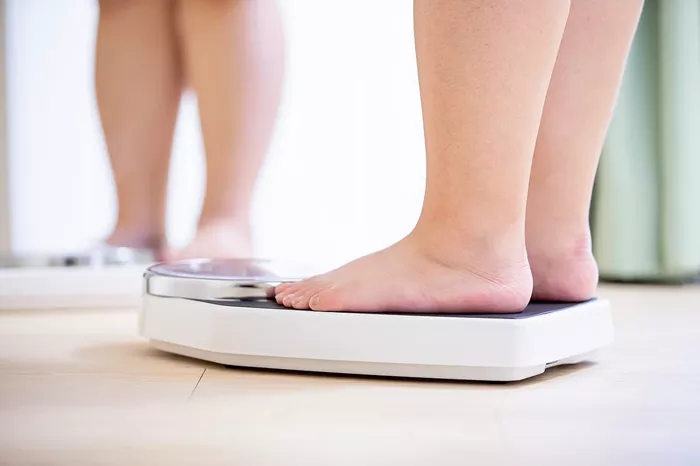Leannyvette Hernandez, a 15-year-old from Fort Worth, made history as the first patient to have weight loss surgery through Cook Children’s Adolescent Bariatric Surgery Program. Since her surgery, she has lost more than 50 pounds and seen significant health benefits in just three months.
Leannyvette struggled with obesity from the age of four. Her weight raised early concerns about diabetes and fatty liver disease. She also faced bullying from other children starting in preschool. As a teenager, her health problems worsened, requiring increasing amounts of medication.
After surgery, Leannyvette’s body mass index (BMI) dropped by 10 points to a healthier level. She now takes fewer medications, sleeps better, and is more active in gym class. She also eats more vegetables and smaller portions without feeling hungry.
Cook Children’s Adolescent Bariatric Surgery Program began in April 2024. Leannyvette joined after a referral from her endocrinologist. She attended monthly appointments over six months at the clinic in Prosper, which included health evaluations, education, nutrition counseling, and other support.
The program is designed for teens ages 13 to 18 and provides one hour of intensive health and lifestyle therapy each month. It aims to help patients and their families succeed in making long-term healthy changes.
On November 18, 2024, Leannyvette became the first patient in the program to undergo gastric sleeve surgery. The surgery removed about 70 percent of her stomach. Three months later, she continued to lose weight due to her smaller stomach and reduced appetite.
“It feels good,” Leannyvette said, adding that she has more energy and a better mood.
She hopes to inspire other young people living with obesity, a chronic disease affecting an estimated 14.4 million children and teens in the U.S. She recalled feeling both excited and nervous before her surgery.
Leannyvette’s mother, Mayra Gonzalez, sent a simple message on the day of surgery: “Her new life will start today.”
Building Blocks: Nutrition and Education
Obesity runs in Leannyvette’s family, with genetic factors playing a role. Over the years, she tried dieting and exercising, but nothing worked long term. She was also diagnosed with polycystic ovary syndrome (PCOS), a condition linked to obesity, and suffered from insomnia. Doctors prescribed medication for both.
Leannyvette also struggled with self-esteem. Finding clothes she liked in her size was hard, and she often felt judged by others. “Sometimes I’m scared to go out because I feel like everybody’s looking at me,” she said before surgery. “At school, I don’t like to put myself out there. I block everything out because I don’t want to hear people’s opinions.”
When her endocrinologist, Dr. Teena Thomas, suggested the bariatric program, Leannyvette agreed to try it. During the six months before surgery, she kept a food journal and worked closely with a dietitian. She learned to make healthier food choices and control portion sizes.
She gradually increased her protein and water intake, cut out fast food and soda, and even discovered she likes broccoli and salmon.
Dr. Kanika Bowen-Jallow, the program’s medical director and a pediatric surgeon, praised Leannyvette’s dedication. “She was a shooting star,” Dr. Bowen-Jallow said. “She came back every month ready to show detailed food journals. Not every kid does that, but Leannyvette did.”
Her mother said the clinic staff was supportive and made her daughter feel comfortable discussing her challenges. They explained the post-surgery diet, which starts with liquids and then moves to restricted foods.
Mayra encourages other parents to be open-minded about bariatric surgery. Though scary, the procedure gave Leannyvette hope for more opportunities, activities, and less reliance on medication.
“Some people think surgery is an easy way out,” Mayra said. “But it’s not. Kids have to learn how to eat all over again. It’s a lifelong change if they want to keep their BMI in a healthy range.”
Surgery and Recovery
The gastric sleeve surgery took place at Cook Children’s Medical Center in Prosper. Dr. Bowen-Jallow removed the larger part of Leannyvette’s stomach through a small incision, leaving a smaller pouch.
Leannyvette woke up pain-free and was able to walk without help. The toughest part after surgery was nausea, which eased with medication after two weeks.
Her diet started with clear liquids, then protein shakes and yogurt, followed by soft foods. She drank 64 ounces of water daily, walked every two hours, and did breathing and leg exercises to prevent blood clots.
Because the surgery happened right before Thanksgiving, Leannyvette found it hard to avoid holiday foods that she craved.
By her three-month checkup, she was allowed a regular diet. She had dropped from a size 20 to 14 and looked slimmer. She stopped taking one of her medications.
For Leannyvette, the sacrifices were worth it. “If they feel ready for surgery, I would say trust your instincts and do it,” she advised other teens with obesity.
Mayra is proud of her daughter’s progress and self-discipline. Not everyone supported their decision. “Some said she was too young and should just diet,” Mayra said. “But we tried everything. This was the best choice for her.”

